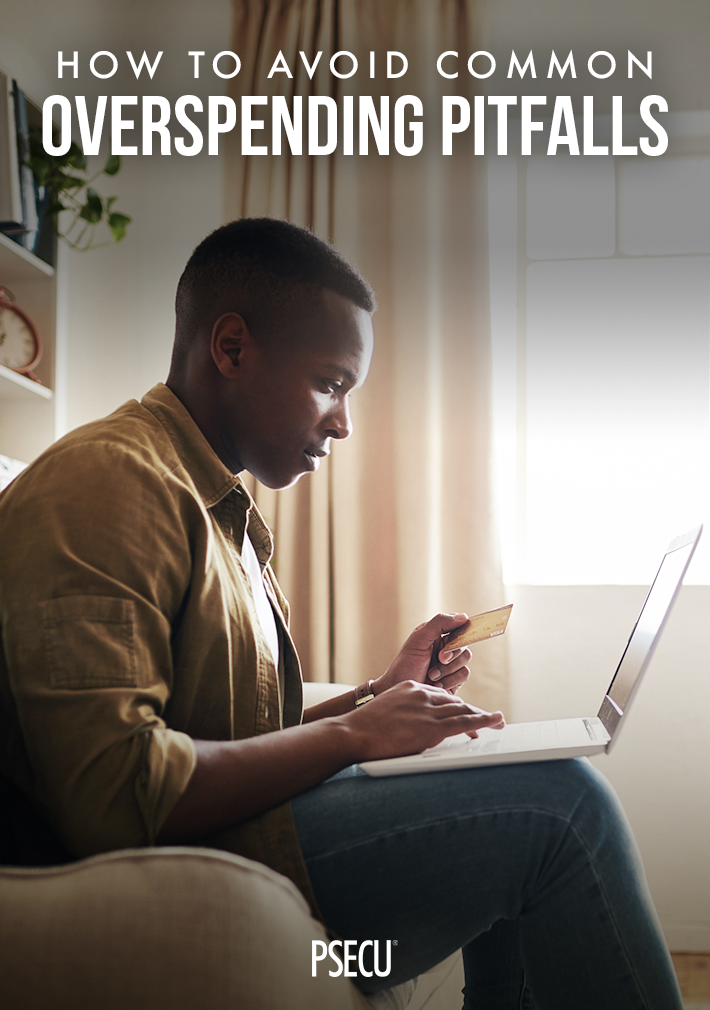Overspending is one of the most common mistakes people make with their money. Buying things you can’t afford can lead to long-term debt, difficulty with financial planning, and stress in your relationships. But if you recognize your reasons for overspending and make an effort to fix them, you can improve your habits.
Why Do People Overspend?
Many people overspend because they don’t have a budget. Not keeping track of your spending can lead you to buy things you can’t afford. You may not be aware that you’re overspending until you need to pay a bill and don’t have enough money in your checking account to cover it.
Others might overspend because they charge items to their credit card without thinking of the repercussions. You may have every intention of paying off your debt, but too often, it’s easy to get into the habit of charging purchases to your card before you’ve paid off your previous balance.
People also overspend because they lack financial discipline. They give in to the urge to buy something, even if they don’t need it. Spending this way can be particularly damaging to your budget if you tend to make more expensive purchases.
Common Areas of Overspending
You can overspend on anything if you don’t have the money to cover your purchases. It often has less to do with the item and more to do with your spending habits.
Overspending will usually fall into one of three categories.
- Small everyday purchases: Buying a coffee and a donut every morning can add up to more than a thousand dollars each year. You could easily save that money by making your own coffee.
- Online shopping: When you can purchase something with a click of your mouse or a tap of your finger, impulse buying can become a problem. You may have given the purchase more thought if you had to stand in line at the store and hand over your card to pay.
- Big splurges: Buying a new TV or booking a dream vacation can impact your bottom line for months.
How to Avoid Overspending
Now that you’ve identified your problem, it’s time to address it. By employing these seven steps, you can rein in your spending habits.

1. Make a Budget and Stick to It
Budgeting is an effective way to manage your finances. When you follow a monthly budget, you see how much money you have available to spend. Budgeting also creates parameters to follow. For example, if you follow a zero-based budget, you’ll allocate all of your funds at the beginning of the month. This way, you’ll know up front how much “extra” you have for leisure spending, like meals out.
2. Focus on Paying Down Debt
As you begin to curb your spending, make a conscious effort to pay off any debt you racked up. Research the snowball and avalanche methods and start following the one that will work best for you. You may also want to consider a credit card balance transfer if you’re facing high-interest debt.
3. Use Credit Cards Responsibly
When used responsibly, credit cards can be a useful tool. They can provide protection for your purchases, allow for minimal contact transactions, and in some cases, like when using our Founder’s Card, allow you to earn cash rewards. The key is to make sure you’re not purchasing more than you can afford, which you can do by budgeting to pay your credit card balance in full each month.
4. Don’t Store Your Card Numbers
If online shopping is an issue, its convenience may be part of the problem. Resist the temptation to store your credit or debit card numbers on websites where you tend to overspend. Having to manually enter the numbers each time will create an extra hurdle to buy something, which can help keep you from making the purchase.
5. Change the Way You Enjoy Entertainment
Finding new and cheaper ways to have fun can also reduce overspending. Maybe you go out to lunch several times a week with friends. Switch up your routine and find something else to do. Meet for walks or make dinner for each other. You might also swap out lunch for less-expensive coffee dates. You can still enjoy time with friends without spending a lot of money.
6. Don’t Buy Anything New for a Month
What’s your biggest spending pitfall? Whether it’s clothes, books, or gourmet coffee, you know what you like and where your money goes. Stop buying anything new in your favorite spending category for a month. It’ll take some discipline, but it can also help you identify when you feel like shopping and how to distract yourself.
7. Reward Yourself With No-Cost Treats
Rewarding yourself for going a month without overspending doesn’t have to cost money. Instead, teach yourself that rewards don’t have to be material. Take a long bubble bath or call a friend you haven’t talked to in a while. By reinforcing good habits, you’ll have a better chance of staying on track.
Address Your Overspending and Improve Your Finances
Overspending is one of the most common financial mistakes, but you can stop the cycle and curb your habit by improving your financial knowledge.
For more tips on money management, visit our WalletWorks page.
The content provided in this publication is for informational purposes only. Nothing stated is to be construed as financial or legal advice. Some products not offered by PSECU. PSECU does not endorse any third parties, including, but not limited to, referenced individuals, companies, organizations, products, blogs, or websites. PSECU does not warrant any advice provided by third parties. PSECU does not guarantee the accuracy or completeness of the information provided by third parties. PSECU recommends that you seek the advice of a qualified financial, tax, legal, or other professional if you have questions.
